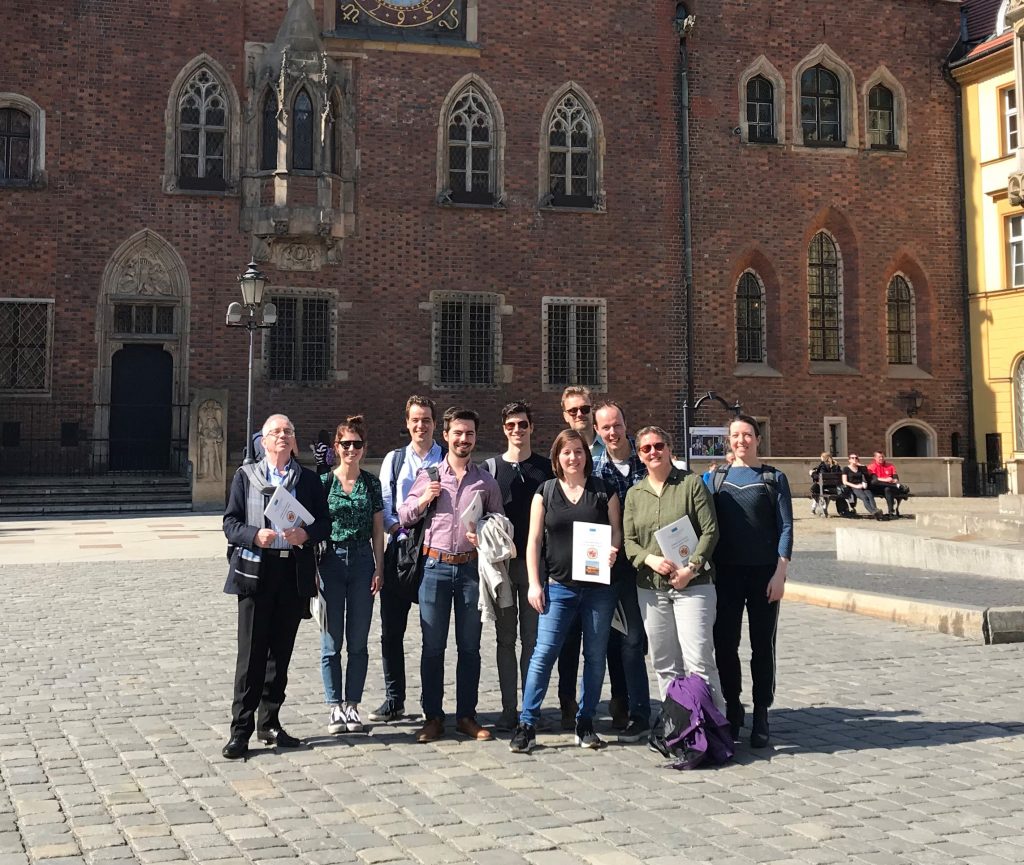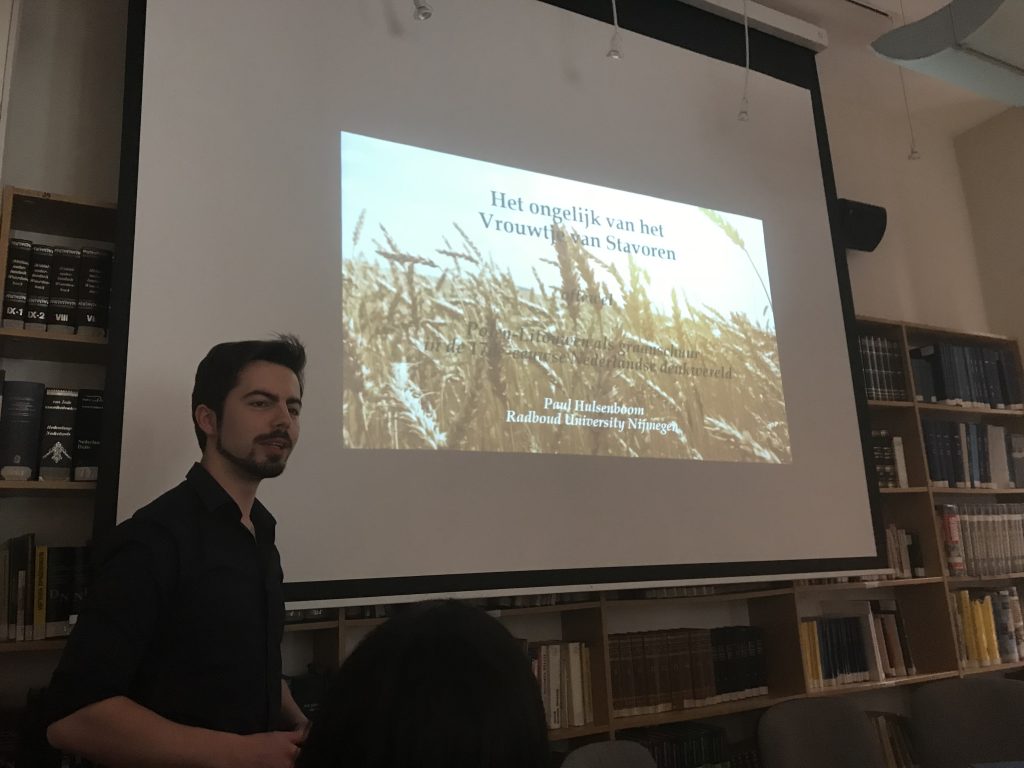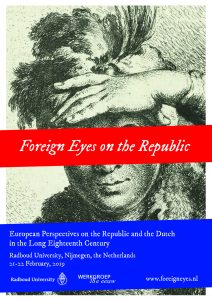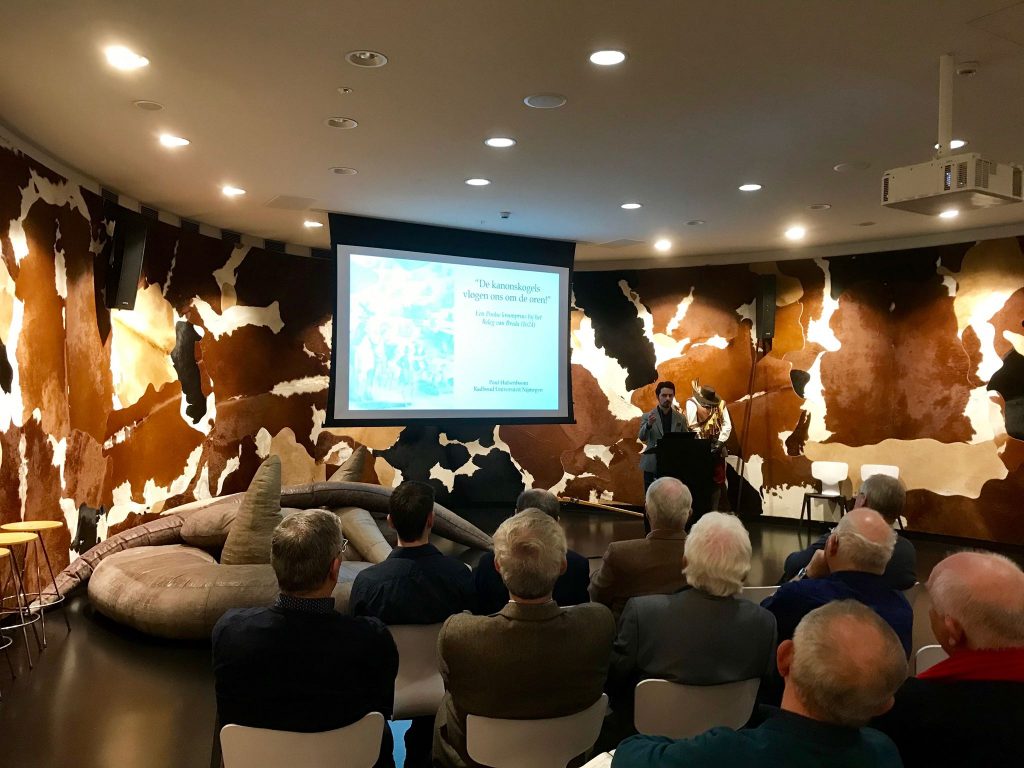Op 4 en 5 april bracht een forse afvaardiging van de Afdeling Nederlandse Taal en Cultuur van de Radboud Universiteit een bezoek aan onze collega’s aan de Uniwersytet Wrocławski in Polen. De studie Nederlands trekt daar jaarlijks vele tientallen studenten: in totaal zijn het er zelfs 300!

Op de eerste dag gaf prof. dr. Lotte Jensen de studenten een lezing over de Nederlandse identiteit. Daarna volgde een expert meeting tussen de Nijmegenaren en onze Poolse collega’s: om de beurt vertelden we elkaar over lopend of afgerond onderzoek. Zelf vertelde ik over mijn onderzoek naar de zeventiende-eeuwse Nederlandse beeldvorming over Polen als de graanschuur van de Republiek. De volgende dag begon met een bezoek aan de Bijzondere Collecties van de universiteitsbibliotheek, waar dr. Joanna Skubisz ons meerdere oude Nederlandse drukken liet zien. We vervolgden de dag in de plaatselijke afdeling van het Muzeum Narodowe (Nationaal Museum), alwaar dr. Małgorzata Dowlaszewicz onze gids was. Tot slot kregen we een prachtige rondleiding door de historische stad, verzorgd door prof. dr. Stefan Kiedroń. Het bezoek was bovendien op touw gezet door dr. Jan Urbaniak.

Een blog door prof. dr. Lotte Jensen over dit bijzonder prettige en succesvolle bezoek is hier te vinden.

 On the 21st and 22nd of February 2019, researchers from both the Netherlands and abroad took part in a conference entitled ‘Foreign Eyes on the Republic: European Perspectives on the Republic and the Dutch in the Long Eighteenth Century’, organised by Alan Moss and myself at Radboud University in Nijmegen. The conference was funded by the Dutch-Belgian Society of Eighteenth-Century Studies and aimed to consider various perspectives of foreigners on the Dutch Republic during the long eighteenth century.
On the 21st and 22nd of February 2019, researchers from both the Netherlands and abroad took part in a conference entitled ‘Foreign Eyes on the Republic: European Perspectives on the Republic and the Dutch in the Long Eighteenth Century’, organised by Alan Moss and myself at Radboud University in Nijmegen. The conference was funded by the Dutch-Belgian Society of Eighteenth-Century Studies and aimed to consider various perspectives of foreigners on the Dutch Republic during the long eighteenth century.

